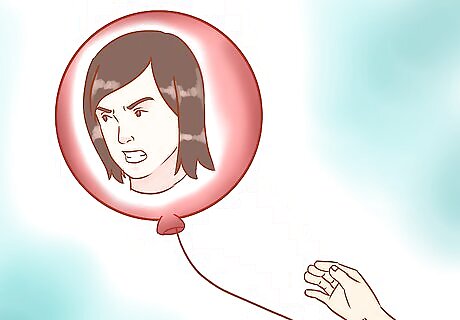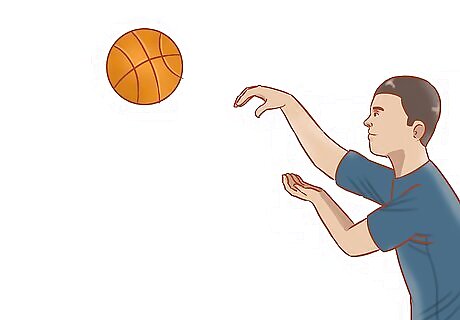
views
Letting Go

Become aware of your emotions. Think about what you just experienced, and try to understand how you are currently responding to it. If you are angry, ask yourself why you are angry. If you are disappointed, ask yourself what you hoped to achieve. Before you accept or control your emotions, you must first understand them. Think about how you would have felt if you had not been defeated. Compare the two states, and consider what remains the same between the two outcomes. Consider writing your thoughts down. Speak to a trusted friend or family member about your feelings. You probably know how you best process emotions – so do what you need to do to come to terms with the situation.

Validate yourself. Tell yourself that there is no way to "feel wrong". No emotion is inherently good or bad. They simply are, and it's healthy to embrace them. Acknowledge the fact that whatever you are feeling is entirely acceptable. Bear in mind that while it is important to embrace emotions, it may be unwise to follow certain feelings (such as anger or self-loathing) to their logical conclusions.

Keep perspective. You may not have been able to prevent your defeat, but you can control your reaction towards it. Take a deep breath, and try to be as levelheaded as possible. Remind yourself that what has happened has happened, and that you cannot change it. This attitude will allow you to be flexible and adaptable – and you may find yourself better at handling negativity and loss in future situations. Remember that life goes on one defeat may not be important in the larger scheme of things.

Don't take yourself too seriously. A situation can always be worse. Consider whether there is a silver lining that you haven't yet seen. Try to find the humor in what has happened, and keep a smile on your face – even though it may be hard for you to crack a natural smile. You may find that the situation is funnier, smaller, or more absurd once you take a step back from your personal investment.

Let go of defeat. When you fail, your emotions can distort your perspective. Do not linger on what happened, and do not let your defeat continue to defeat you. You might feel yourself welling up with anger, frustration, or indignation: feelings that, in this case, will only feed themselves. Learn to recognize these non-accepting emotions, catch hold of them, and cast them aside. You can move on by letting go, or you can move on by seeking retribution. Letting go will release you from your defeat, while the quest for retribution will only tie you to the defeat. Let go of self-judgment. Accept that failure is merely a part of life. People have and will always deal with defeat – it is a matter of perspective. If your opponent is being a poor sport, don't lash out. It doesn't change the fact that they won, and it damages your image.
Being a Good Sport

Lose with grace. Show respect to whomever or whatever has defeated you. Shake hands with your opponent, and congratulate her on a job well done. Whether you lost a fight, a debate, or a competition, try not to resort to pettiness. You won't be able to reverse the results by complaining about them, or by acting bitter toward the winner. Be as polite and gracious as possible. Thank them for their time and congratulate them on their skills and their win. If you are a gracious loser, the victor will likely feel uncomfortable boasting about their win in front of you. This changes the situation from a winner-loser game to a moment between two people who respect each other and have just finished an enjoyable pastime.

Don't let judgment get to you. If others will judge you for being defeated, let them do so. You know who you are, and you don't need to justify yourself to someone else who doesn't know your heart. Be your own center. Losing with class turns your loss into a much bigger victory than any win would. Others have a responsibility to encourage everyone to participate. If they forget their role, you must not forget yours. Be excited about pursuing your interests. If your opponent is mocking you, that means they're worried that you might be motivated by your loss. Ignore them; the more you listen to them, the more you accept their words as fact.

Do not lay blame. If you blame another person, group, or set of circumstances for your defeat, you will keep yourself from accepting what happened. If you blame yourself, you will make yourself miserable, and you'll miss out on the chance to grow from the experience. Try to take the situation exactly as it is: what happened, happened, and no amount of blaming will reverse that. Think about what happened. Did practice prepare you for the situation you faced? Did your team communicate well? Whatever the case, try to address it at the next practice.

Focus on admiring how well your opponent played rather than your own defeat. Praise them for a particularly clever or effective move. This has the added benefit of letting you take effective strategies from them and figure out flaws in their strategy. If your opponent cheated, wait until you've calmed down; then, talk to those in charge. Don't make a scene; after all, you're supposed to be the honorable one, and you may ruin your case if you act rashly.

Admit that you were wrong. If you lost a debate or an argument, you can improve your image by admitting that you were wrong or defeated. Consider apologizing, acknowledging your mistake, or explaining how you were wrong; after all, it's more shameful and immature to cling to what's wrong than admitting someone else is right. Consider that we all make mistakes and are wrong at many points in our lives. It's part of our development, and a large part of what helps us mature. You will lose credibility if you handle the situation in a petty and immature way. If you respond positively, onlookers and your opponent will see that you can accept when you're wrong.
Moving Forward

Try to learn from what happened. If you can take loss as a learning experience rather than an abject failure, then you can transcend what happened and move on with your life. You may have been defeated, but you need not be defeatist. If you finish tall, reflect and learn, and move on with a smile on your face, you haven't been defeated. You've grown, and you've been taught a lesson. If you carry yourself in the same way any other time you are defeated, you'll find it easier and easier every time – and you may come to realize that you've won in a different way: by improving yourself, and by learning. Try to take it as a premise that failure has a role in your journey. Ask yourself about the purpose of this failure; what you can learn from it; and why it happened. Think about why you failed, and whether you could have done anything. Ask yourself whether you unconsciously forced yourself to fail because you are unsure of the goal you're trying to reach.

Improve on your mistakes. Think back on what happened, and look for lessons. Analyse the situation objectively. Figure out what you can realistically do to stop this from happening again – and make it actionable. Focus on the future. The more you focus on your next win, the better you may feel about your last defeat. Not all winners have won their first match. If you don't accept defeat gracefully, you will act rashly. People may notice if you don't handle your loss in a mature way.

Keep playing the game. No matter what led to your defeat, make sure that you don't let it stop you from doing what you love. Most people come up against failure at one point or another – including (and perhaps especially) winners. You'll never improve if you don't keep trying, and you may regret it later if you quit based on this one defeat. Failure is an important part of growing and getting better at what you do. Many people fail their way to success. Thomas Edison failed many times before inventing the light bulb, but he was able to persevere forward. When you finally do win, take some time to reflect. How have your failures helped you? You'll feel far more satisfied when you have all that struggle behind you.




















Comments
0 comment